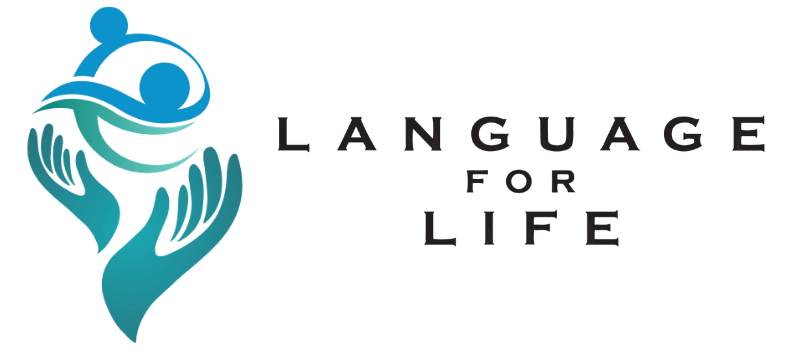When caregivers start asking questions about their child’s language development and late talking, speech-language pathologists hear answers like this all. the. time.
- “Don’t worry – he will talk when he’s ready.”
- “She’s just a late talker, she will catch up.”
- “Boys talk later than girls, he’s fine.”
- “She’s just letting big brother talk for her.”
While these responses may provide temporary comfort, they actually dismiss very valid concerns and perhaps do an extreme disservice to our children. I feel it’s my responsibility to ensure the concerns of caregivers are heard. I believe parents are the experts on their children. They know what is typical for their child. I trust that if a caregiver has a concern or uneasy feeling about how their child is developing, it is worth my concern too.
Who is a “late talker?”
A “late talker” is a toddler, age 18-30 months, who:
- Hasn’t started using words by age 18 months [OR]
- Has less than 50 words [AND/OR]
- Is not combining words together [AND]
- Otherwise has typical development
Late talkers typically appear to have good understanding of what is said to them, engage in appropriate, but often quiet play, and interact well with others using gestures.
By 18 months, a child should use at least 20 different types of words, such as:
- Nouns (doggie, milk)
- Verbs (go, eat)
- Prepositions (up, down)
- Adjectives (big, hot)
- Social words (hi, bye)
By 24 months, a child should use at least 100 words and combine two words together, such as “where shoe?” or “drink milk.”
So, what are the facts about late talkers?
1. We don’t know why some children are late talkers.
Research has not yet been able to determine a cause for why some children are late to talk. However, some children may be at a higher risk of delayed language if they have the following red flags:
- Child does not use many sounds – Is a “quiet baby”
- May not use many gestures
- Does not imitate many sounds or actions
- May only use few basic words, but does not continue to expand vocabulary
- Have difficulty understanding directions or vocabulary expected for their age
- Have a family member with history of language delay
- Prematurity and/or Low birth weight
- History of ear infections
(Ellis & Thal, 2008; Olswany, Rodriguez & Timler, 1998).
Children who have physical or developmental delays (such as Cerebral Palsy, Autism, Down Syndrome, Childhood Apraxia of Speech, or receptive language disorder) are not considered “late talkers,” but rather as having a language delay or disorder.
2. Late talkers may continue to struggle with language even if they “catch up” on their own.
70-80% of late talkers will catch up by kindergarten without intervention, BUT research indicates these children may have lower skills in language (vocabulary and grammar), literacy (reading and writing), social turns, behavior and listening comprehension, and executive function (Dale, Price, Bishop, & Plomin, 2003; Hawa & Spanoudis, 2014).
This means 20-30% of young children will NOT catch up to their peers without intervention. Unfortunately, we cannot reliably predict who will catch up on their own yet. Is waiting a risk worth taking? If your child had a 30% chance of losing their ability to walk, would you just wait and see?
3. Early intervention works.
Research indicates intervention sooner, rather than later, yields increased language growth, literacy gains, improved social skills, behavior, and attention, as well as executive functioning (e.g., planning, organizing, attention, problem-solving), and overall academic achievement. Providing early intervention to “late talkers” can decrease the impact of future difficulties or lasting effects of delayed language (Capone Singleton, 2018; Olswany, Rodriguez & Timler, 1998).
Pediatricians are often responsible for screening children for speech and language delays at the child’s well check. However, pediatricians have only a general knowledge about speech and language development. Speech-language pathologists (SLPs) are the experts and have more specific education and training to help identify children who need help.
Credit to:

